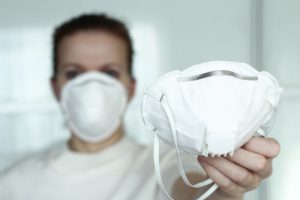
U.S. Sen. Deb Fischer (R-NE) on March 2 introduced a bipartisan bill to make available more respirators during public health emergencies, such as the current global COVID-19 coronavirus outbreak.
“Our bipartisan bill would help ensure manufacturers are producing additional respirators,” Sen. Fischer said. “This would assist medical personnel in responding to the outbreak and saving lives.”
Sen. Fischer sponsored the Health Care Workforce Protection Act of 2020, S. 3372, with original cosponsors U.S. Sens. Mike Rounds (R-SD) and Kyrsten Sinema (D-AZ) to provide for treatment of certain respiratory protective devices as covered countermeasures for purposes of targeted liability protections for pandemic and epidemic products and security countermeasures, according to the text of the bill.
Current law permits the U.S. Department of Health and Human Services to issue a declaration granting limited liability protection to manufacturers and distributors of certain countermeasures, including respirators, against diseases when the government calls up that equipment to be used in the event of an outbreak or epidemic, according to information provided by Sen. Fischer’s office.
However, respirators certified by the Centers for Disease Control and Prevention’s (CDC) National Institute for Occupational Safety and Health (NIOSH) currently are not eligible for that protection, according to the information.
If enacted, S 3372 would amend the law to ensure that all NIOSH-certified respirators are eligible for the same federal liability protections as other medical products, vaccines and drugs.
“With the number of coronavirus cases on the rise, communities need to be able to quickly access CDC-approved equipment to keep Americans safe,” Sen. Fischer said.
S. 3372 is the Senate version of the same-named H.R. 4982, introduced in November 2019 by U.S. Reps. Don Bacon (R-NE) and James Langevin (D-RI) in their chamber.
The measure has been referred for consideration to the U.S. Senate Health, Education, Labor, and Pensions Committee.



